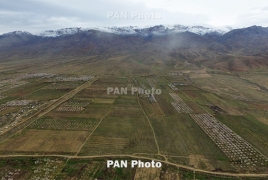
People who live in regional or remote areas may be at lower risk of developing Alzheimer's disease, according to a recent research.
Using data from more 260,000 adults in New South Wales who were aged 45 and over, the researchers found those living in regional or remote areas of the state had a 6% to 19% lower risk of being diagnosed with Alzheimer's disease over 11 years, compared with their city counterparts.
"We identified diagnosed Alzheimer's disease using the first prescription of a group of medications collectively referred to as cholinesterase inhibitors and memantine. These are prescribed after someone gains a mini-mental state examination score consistent with Alzheimer's disease, which is then confirmed by a specialist," Medical Xpress says.
Some previous research suggests people living in rural areas may be at a higher risk of developing Alzheimer's disease. But the results tell a different story.
Research has long said that air pollution is bad for your health. Emerging research suggests air pollution could also play a role in the development of Alzheimer's disease.
The problem isn't just the stuff in the air you can see. The tiny particles you can't see are the most harmful. Once you breathe them in, they can enter the bloodstream and travel to every major organ, including the brain.
People living in Australia's largest cities are generally exposed to higher levels of air pollution, which could help to partly explain why the researchers found a higher risk of Alzheimer's disease it city dwellers.

